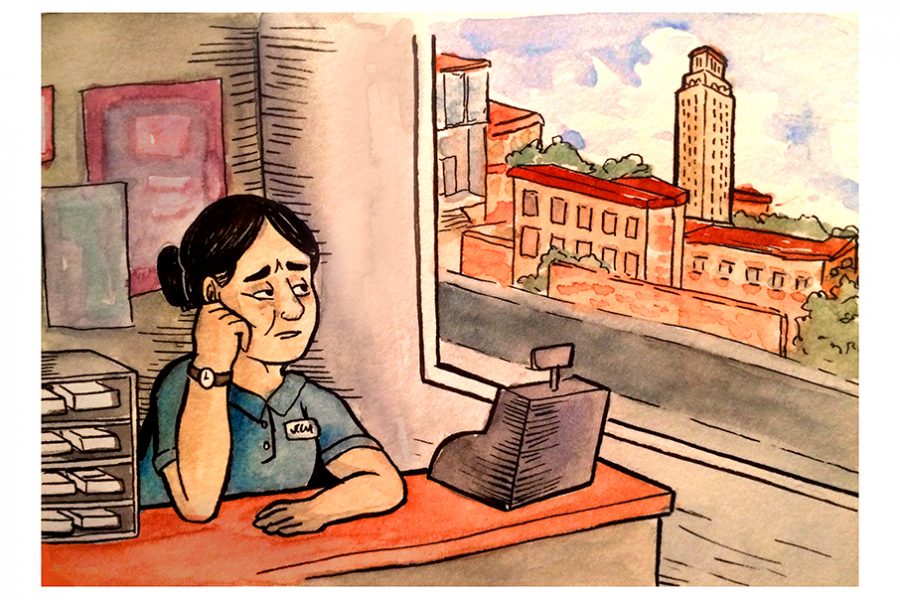Summer classes can be necessary tools to ensure students graduate in four years. But to receive financial aid for summer classes, students must take a minimum of six credit hours, which discourages many working students from summer enrollment.
Diane C Todd Sprague, Executive Director of UT’s Office of Financial Aid, said in an email that, “The six-hour requirement is designated by federal regulation. This is the same minimum for all semesters; Fall, Spring and Summer.” While this regulation is established at the federal level, UT should still help its students by offering scholarships for those enrolled in less than six hours over the summer.
Students who need summer financial aid are more likely to work full-time summer jobs in order to fulfill their basic costs of living. Since many summer classes are condensed into 5 weeks, the course load is heavier than fall or spring semesters. Demanding work commitments combined with the increased intensity of summer classes make it difficult to manage more than one summer class.
Michael Akaolisa, Biochemistry sophomore, says that he did not have any personal trouble navigating this system. He notes that “these classes aren’t cheap,” but he was able to plan ahead to afford them. But for some UT students planning isn’t enough. There simply isn’t isn’t enough money to pay for this single class.
Communication Studies and Disorders sophomore Brianna McBride is one of those students who simply cannot afford summer classes under this system. McBride speaks to some of the discouragement she faces by not having access to aid for less than 6 credit hours. She says that, “because I don’t get aid for taking one class, I’ve opted out of taking a class here over the summer.”
McBride believes this policy “is putting financial strain on students.” She also mentions that many students need only one summer class to graduate on time, to stay ahead academically, or to retake a class. “It’s unfair to assume every student has around $1,200 to cover one summer class,” says McBride. Not only is this policy unfair, but it has the potential to set students back in their academic career.
While some students, like Akaolisa, might be able to navigate through this system fairly easily, others don’t have the flexibility in their schedules to do so. Students working full-time summer jobs and handling other responsibilities can easily become overwhelmed by more than one class, but can also set back their academic progress by not being able to take a single course.
UT could ameliorate this issue by creating need-based scholarships for students who have trouble paying for the one class and do not have the flexibility of taking two classes. These scholarships could be funded through the Give to UT campaign. This campaign gives UT donors the opportunity to give their money to a variety of institutions and projects at the university.
In 2011, The University of Texas at Austin prioritized efforts to increase its graduation rates, and the following year, it set out to accomplish a 70 percent 4-year graduation rate. Providing more summer financial assistance could help keep students of track, benefitting both the university and the student. Summer classes help ensure that students complete their degree plans in a timely manner, and UT should remove obstacles that get in their way.
Oyenubi is a Social Work junior from Temple. Follow her at @mazing__G on Twitter.


















